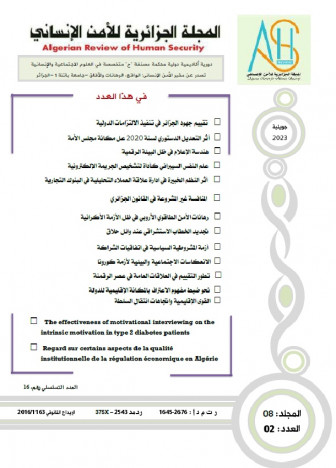John Burton, Max Neff, Abraham Maslow, Optics within the Theory of Humanitarian Needs and Their Impact on the Analysis of Ethnic Conflicts.
DOI:
https://doi.org/10.59791/arhs.v8i1.1929Keywords:
Theory of Human Needs, Ethnic Conflicts, Sri Lanka, Tamil Tiger movementAbstract
Unlike traditional positivist perspectives on managing and resolving ethnic conflicts, Which bases its analytical vision on the approach of power, interest and other material variables The new analytical perspective launched by John Burton, Abraham Maslow, Max Neff and others adopts a normative dimension that revolves mainly around the approach of basic human needs as a major cause of the stubborn ethnic conflicts in contemporary international relations, In the same context, this article comes to examine the limits of the explanatory power of the theory of human needs to identify the backgrounds and causes of ethnic conflicts, Hence, by taking the conflict between the Tamil Tigers and the Sri Lankan government as an empirical test, it seeks to determine the extent of its success in analyzing and managing violent and stubborn ethnic conflicts. It argues that it is not possible to transcend these explanatory limits to the approach of human needs when approaching the phenomenon of ethnic conflicts, given that those needs are general, comprehensive, and non-chaotic, in an attempt to refute the critical claim that the needs in themselves are non-contextual as well as non-historical.





